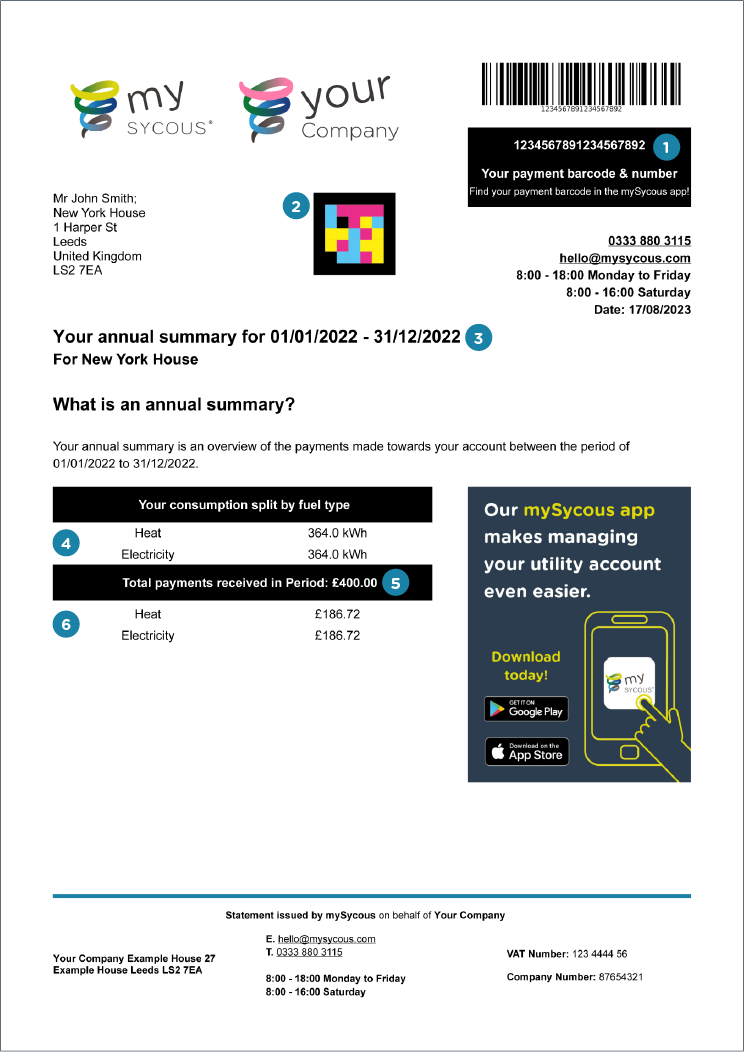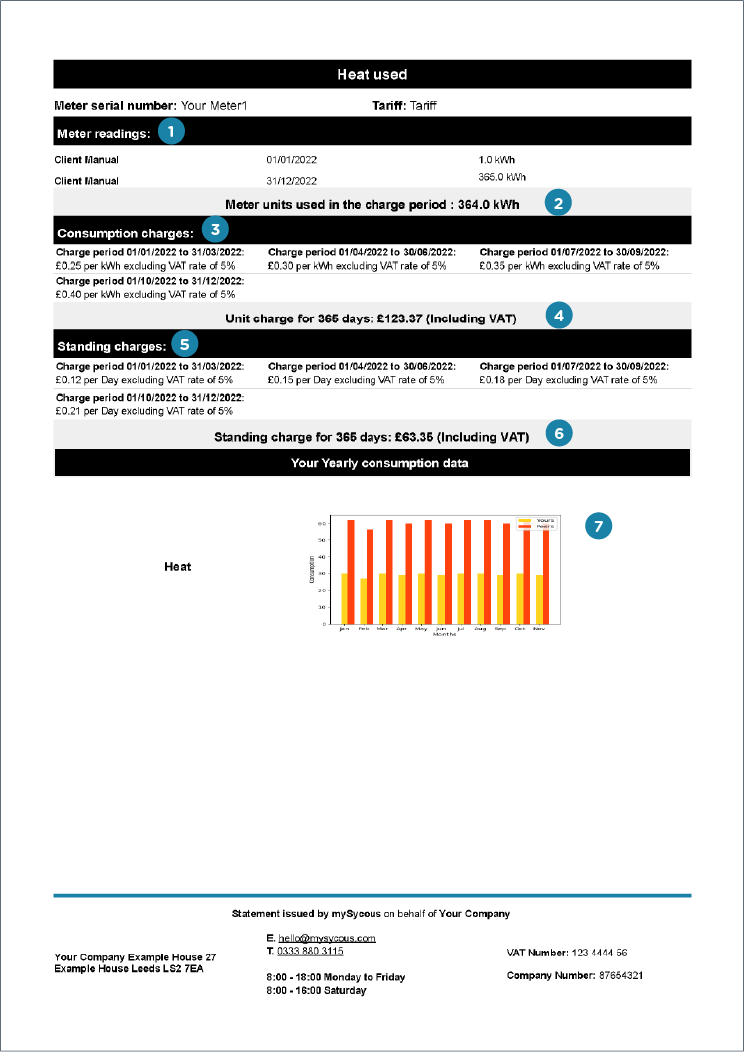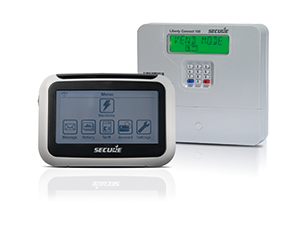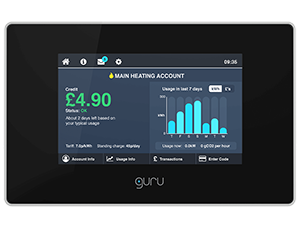Click here to view our pdf Understanding Your Utility Statement guide.
Your utility statements give you information about your utilities and how much you’ve spent.
It shows how we work out what you’ve used, what it has cost you and summarises your account.
When you have multiple utilities, your statement may be longer that’s because we provide a breakdown for each utility, as well as a summary.
Check out our example utility statement for help understanding your account:
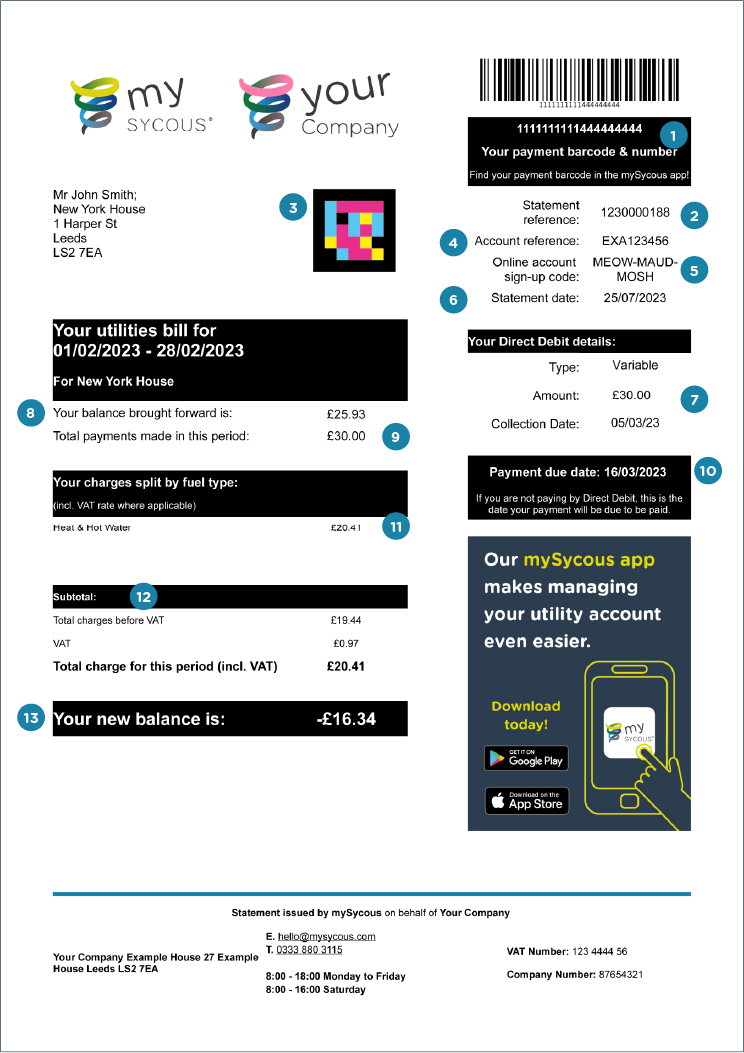
1. Payment barcode & number: Your unique barcode and number to make payments at any PayPoint outlet.
2. Statement reference: The unique reference for this bill.
3. NaviLens Code: NaviLens is a tool for the visually impaired to make their environment more accessible. Scan this code with the NaviLens App or NaviLens Go! App to learn more.
4. Account reference: Your unique customer account reference number.
5. Online account sign-up code: Your unique code for registering your online account at mysycous.com/online.
6. Statement date: The date the bill was created.
7. Your Direct Debit Details: Details of your next Direct Debit payment. If you do not have a direct debit set up, this section will detail how much you need to pay and the due date of the payment.
8. Your balance brought forward is: The balance carried over on your account from the previous month.
9. Total payments made in this period: The amount of payments you have made in this period before your new bill was raised.
10. Payment due date: The date you are required to pay your bill.
11. Heat & Hot Water: The amount owed for the statement period for each fuel. (This is just an example, you may receive a bill for utilities other than Heat & Hot Water too)
12. Subtotal: A summary of this statement.
13. Your new balance is: The new account balance.
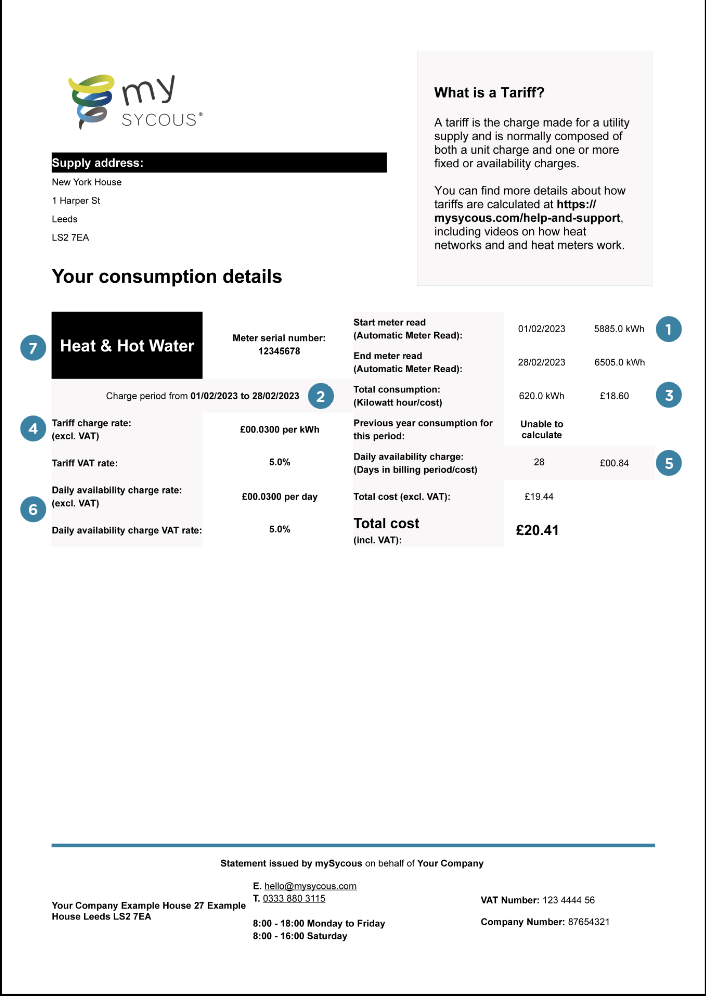
1. Meter Readings: The type, date and value of the readings used to calculate your consumption.
2. Charge period: The period of time your bill covers.
3. Total consumption: The total amount of utility consumption used over the period and the cost this equates to.
4. Tariff charge rate: Your current utility consumption tariff which is used to calculate the variable amount of money you owe for the billing period.
5. Daily availability charge: The total days in billing period and cost this equates to for providing the utility service to you.
6. Daily availability charge rate: Your current utility availability tariff which is used to calculate the fixed element of providing the utility service to you.
7. If you are billed for more than one utility supply, each supply will have a its own section with a cost breakdown.

